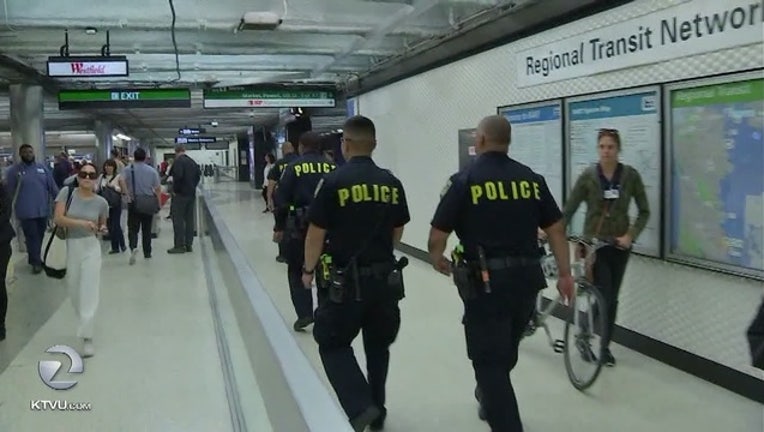BART's new ordinance will be in effect beginning New Years Day

OAKLAND, Calif. (BCN) - BART's ordinance passed in October takes effect on Jan. 1, 2018, which deters fare evasion by requiring proof of payment inside paid areas of stations and on-board trains.
Any person inside these paid areas must be prepared to show a magnetic stripe ticket or Clipper card with valid fare on them.
The BART Board of Directors passed the payment requirement on Oct. 26. It was agreed upon that there will be a one month grace period when violators of the ordinance will be warned instead of cited.
Adults who fail to show proof of payment in paid areas or on a train will be issued a civil administrative citation if it is the first and second violation within any 12-month period. Once an individual has more than two civil citations, BART police can issue a criminal citation.
Juveniles will be cited just civil administrative citations when they fail to provide proof of payment.
Proof of payment will be enforced by fare inspectors, or unarmed community service officers employed by BART. They will go through training prior to this ordinance's inception.
The fare inspectors will have the authority to issue civil citations but not criminal citations. However, they can call upon a BART police officer for assistance in extenuating circumstances.
Fare inspectors will proceed from one passenger to the next nearest passenger and check as many as possible on trains as well as on platforms. They will activate mobile video recorders prior to the start of any fare inspection.
BART police may step in on their own if they have reasonable suspicion to believe that an individual evaded paying fares in paid areas of BART.
BART police can issue a criminal citation to anyone they believe knowingly gives false information to police or fare inspectors about proof of payment.
Civil citation fines will be $75 for adults and $55 for minors. Community service options are available. Criminal citations will not exceed $250.
There are checks and balances in place for the public, including but not limited to an appeal process, quarterly audits of enforcement demographics, body camera videos, spot checks, and report by board members of proof of payment contacts, civil and criminal citations, requests for community service, delinquent payments and repeat offenders.

